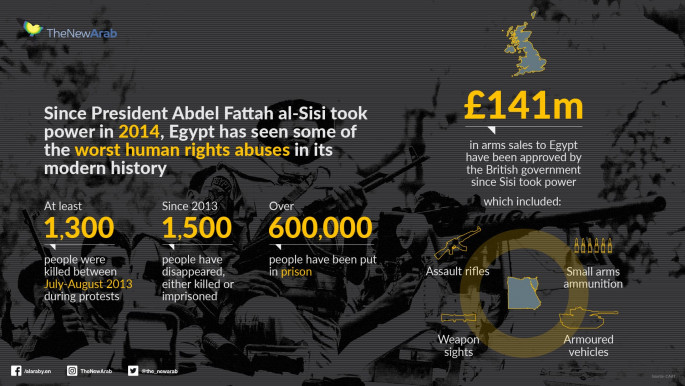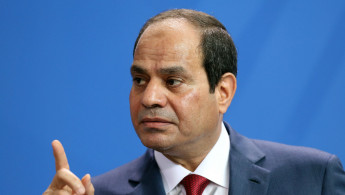Egypt's Sisi urges 'decisive' action against states backing 'terror'
Egypt's president Wednesday called for "decisive" and "collective" action against countries supporting "terrorism" in an apparent reference to Turkey and Qatar, who back the Muslim Brotherhood group, which is outlawed in Egypt.
The three countries also support opposing factions in the war-torn Libya.
Addressing a two-day forum on peace in Africa in the southern city of Aswan, President Abdel Fattah Al-Sisi also said achieving sustainable development in Africa is needed, along with efforts to fight militant groups in Egypt and sub-Saharan countries.
"There should be a decisive response to countries supporting terrorism and a collective response against terrorism, because the terrorist groups will only have the ability to fight if they are provided with financial, military and moral support," he said.
Egypt has for years been battling Islamic State group militants in the Sinai, while a seperate insurgency began after the overthrow of President Mohammed Morsi's Muslim Brotherhood government in 2013.
Militant-related violence in Egypt has been centered on the Sinai Peninsula, as well as in the country's vast Western Desert, which has witnessed deadly attacks blamed on militants infiltrating from neighboring Libya.
Read more: Egypt builds a wall around Sharm el-Sheikh to 'keep out terrorists and Bedouins'
Since Sisi's rise in 2013, Egypt has drawn heavy international criticism for its sweeping crackdown on dissent.
The authorities have jailed thousands of Morsi's supporters as well as liberal and secular activists, including a popular blogger, actors, singers and journalists. Morsi himself died in June, in what UN experts say could amount to "a state-sanctioned arbitrary killing".
Since Morsi's ouster, tensions have grown between Egypt and Turkey and Egypt and Qatar. The political party of Turkish President Recep Tayyip Erdogan is an offshoot of the Muslim Brotherhood, which Cairo designated as a "terrorist group" in 2013.
 |
Sisi also said a "comprehensive, political solution would be achieved in the coming months" for the conflict in Libya, which descended into chaos after the 2011 civil war that ousted and killed long-time dictator Muammar Gaddafi. He did not elaborate.
Sisi apparently was referring to an international summit in Berlin that aims to reach agreement on an outline of actions needed to end the conflict. The conference had been scheduled for October but it has apparently been postponed.
Read more: Turkish-Libyan alliance in eastern Mediterranean: A game changer?
After the 2011 civil war that ousted and killed long-time dictator Gaddafi, Libya descended into chaos and split in two, with a weak UN-supported administration in Tripoli overseeing the country's west and a rival government in the east aligned with the Libyan National Army led by rogue General Khalifa Hafter.
Hafter is backed by the UAE and Egypt, as well as France and Russia, while the Tripoli-based government receives aid from Turkey, Qatar and Italy.





 Follow the Middle East's top stories in English at The New Arab on Google News
Follow the Middle East's top stories in English at The New Arab on Google News
![Israeli forces ordered bombed Gaza's Jabalia, ordering residents to leave [Getty]](/sites/default/files/styles/image_330x185/public/2176418030.jpeg?h=a5f2f23a&itok=_YGZaP1z)

